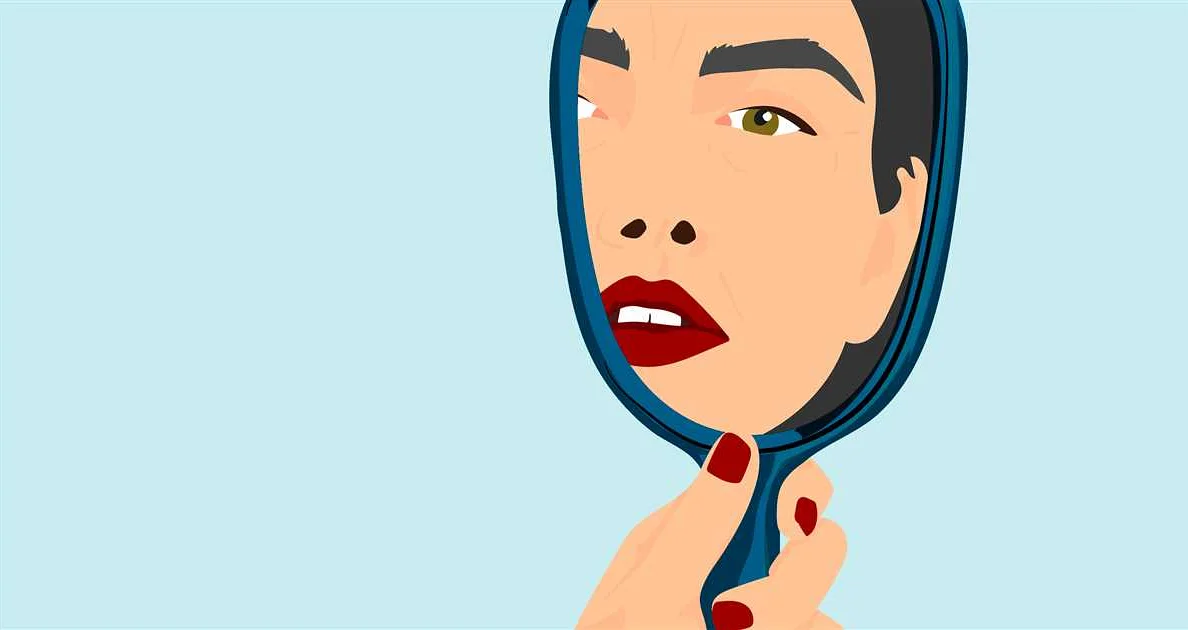Why are people afraid of old age and how to get rid of the pathological desire to remain forever young?
Содержимое
Discover why people fear old age and learn how to overcome the unhealthy desire to stay young forever. Gain insight into the societal pressures and personal fears that contribute to this fear, and find practical tips for embracing the beauty and wisdom of aging.
As humans, we have a natural fear of aging. We strive to maintain our youthful appearance and vitality, often going to great lengths to avoid the physical and mental effects of getting older. However, this fear of old age can become pathological, leading to a desperate desire to stay forever young.
It is important to understand the roots of this fear. Society bombards us with messages that equate youth with beauty, success, and happiness. We are constantly reminded of the inevitability of aging, which creates anxiety and a desire to delay or avoid it altogether. This fear can be further exacerbated by personal experiences or witnessing the decline of loved ones.
While it is natural to want to maintain our youthfulness, it is crucial to recognize when this desire becomes unhealthy and pathological. The pathological fear of old age can result in a relentless pursuit of physical perfection, leading to an obsession with cosmetic procedures, extreme diets, and unhealthy lifestyle choices. This fear can also manifest in a refusal to accept the natural process of aging, causing individuals to isolate themselves from society and miss out on the joys of growing older.
Overcoming the pathological desire to stay forever young requires a shift in mindset and a reevaluation of societal norms and expectations. It is important to recognize that aging is a natural part of life and that there is beauty and wisdom to be gained from the experience. Embracing the aging process and focusing on maintaining overall health and well-being can lead to a more fulfilling and meaningful life.
Ultimately, the fear of old age stems from a fear of mortality and the unknown. By confronting these fears and letting go of the desire to stay forever young, we can free ourselves from the burdens of unrealistic expectations and live our lives to the fullest, embracing the wisdom and beauty that comes with age.
Understanding the Fear of Old Age

As human beings, aging is an inevitable part of life. However, the fear of old age is a common sentiment that many individuals experience. This fear can stem from various factors such as societal expectations, physical changes, and the fear of death.
One reason for the fear of old age is the societal pressure to maintain a youthful appearance. In our society, youth is often associated with beauty, vitality, and success. As individuals age, there can be a fear of losing these desirable qualities and becoming less valued or relevant. This fear of losing societal approval can lead to anxiety about growing older.
Another factor that contributes to the fear of old age is the physical changes that occur with aging. As individuals age, they may experience changes in their physical appearance, such as wrinkles, grey hair, and a decrease in mobility. These changes can be distressing and can make individuals feel less attractive or capable. The fear of losing one’s physical abilities and independence can be a significant source of anxiety.
Additionally, the fear of old age is often intertwined with the fear of death. Aging is a reminder of our mortality, and it can be unsettling to confront the reality of our own eventual demise. This fear of death can be exacerbated by societal taboos and the way death is often portrayed as a negative or frightening experience in popular culture.
To overcome the fear of old age, it is essential to reframe our perspective and embrace the aging process as a natural and valuable part of life. Rather than focusing on societal expectations, it is important to prioritize personal well-being and self-acceptance. Engaging in activities that promote physical and mental health can help individuals feel more confident and content as they age.
Furthermore, embracing the wisdom and experience that comes with age can be empowering. Older individuals have a wealth of knowledge and can contribute valuable insights to society. By acknowledging and celebrating the contributions of older individuals, we can challenge societal ageism and create a more inclusive and accepting culture.
In conclusion, the fear of old age is a complex emotion that can stem from societal pressures, physical changes, and the fear of death. However, by reframing our perspective and embracing the aging process, we can overcome this fear and appreciate the value of growing older.
Overcoming the Pathological Desire

As individuals, we must strive to overcome the pathological desire to stay forever young. While it is natural to have a fear of aging and the changes that come with it, it is important to recognize that aging is a normal part of life. Embracing the aging process and finding ways to cope with the physical and emotional changes can lead to a more fulfilling and contented life.
One way to overcome the pathological desire to stay forever young is to shift our mindset and focus on the present moment. Rather than constantly worrying about our appearance or chasing after unattainable standards of youthfulness, we can learn to appreciate and accept ourselves as we are. This involves cultivating self-love and self-compassion, and recognizing that our worth is not determined by our external appearance.
Another essential step towards overcoming the pathological desire is to engage in open and honest conversations about aging. By discussing our fears and concerns with trusted friends, family members, or professionals, we can gain new perspectives and find support in our journey towards accepting the inevitability of aging. Sharing our experiences and learning from others can help us realize that we are not alone in our struggles and that there are healthy ways to navigate the aging process.
Furthermore, it is important to prioritize self-care and engage in activities that promote physical and mental well-being. Regular exercise, a balanced diet, and sufficient rest are essential for maintaining overall health and vitality as we age. Additionally, engaging in hobbies, pursuing interests, and maintaining social connections can contribute to a sense of purpose and fulfillment, regardless of age.
Lastly, it is crucial to challenge societal stereotypes and redefine what it means to grow older. Aging should not be seen as a decline or loss, but rather as a new chapter in life filled with opportunities for growth, wisdom, and fulfillment. By embracing a positive and empowering attitude towards aging, we can overcome the pathological desire to stay forever young and embrace the beauty and uniqueness of each stage of life.
| 1. Shift your mindset and embrace the present moment. |
| 2. Engage in open and honest conversations about aging. |
| 3. Prioritize self-care and engage in activities that promote well-being. |
| 4. Challenge societal stereotypes and redefine aging. |
To Stay Forever Young
Desiring to stay forever young is a common sentiment among many individuals, especially in today’s society that associates youth with beauty, vitality, and success. The fear of aging and losing one’s youth can lead to a pathological desire to cling onto youthfulness at any cost.
This desire often manifests in obsessive behaviors and an excessive focus on physical appearance. People may resort to extreme diets, intense workout routines, and cosmetic procedures in an attempt to maintain a youthful appearance. However, these efforts are often temporary and can even be harmful to one’s physical and mental well-being.
The obsession with staying forever young stems from the fear of losing relevance, attractiveness, and societal acceptance as one grows older. Media and societal pressures further exacerbate this fear, promoting unrealistic and unattainable standards of eternal youth.
It is important to recognize that aging is a natural and inevitable part of life. Embracing the aging process can lead to a healthier mindset and a more fulfilling life. Instead of focusing solely on physical appearance, individuals should prioritize overall well-being, including mental, emotional, and spiritual growth.
By shifting our perspective on aging, we can find beauty and value in the wisdom and experiences that come with growing older. It is essential to cultivate self-acceptance, self-care, and self-love throughout all stages of life, rather than fixating on the external markers of youth.
Additionally, staying mentally and physically active can help maintain cognitive function and physical health as we age. Engaging in activities such as reading, learning new skills, staying socially connected, and participating in regular exercise can contribute to a positive aging process.
Ultimately, the fear of aging and the desire to stay forever young can hinder personal growth and happiness. Embracing the inevitability of aging and valuing the unique journey that each individual takes can lead to a more fulfilling and contented life.
Exploring the Psychological Aspects
Understanding the fear of old age requires delving into the psychological aspects that contribute to this phenomenon. This includes analyzing the cultural and societal influences that idealize youth and place a high value on physical appearance. Additionally, examining the individual’s personal experiences, beliefs, and fears can shed light on why the desire to stay forever young may become pathological.
A crucial factor is the role of societal conditioning in perpetuating the fear of old age. Western societies, in particular, often prioritize youthfulness and associate it with beauty, success, and desirability. Advertisements, media, and popular culture consistently promote products and lifestyles that promise to reverse or delay the aging process.
Furthermore, personal experiences and beliefs can shape an individual’s fear of aging. Traumatic events or negative experiences related to aging can contribute to a fear of growing old. Unrealistic beliefs and expectations about aging, such as associating it only with physical decline or loss of independence, can also fuel the desire to stay forever young.
Psychological factors such as fear of mortality, fear of losing relevance or being marginalized, and fear of change can also contribute to the fear of old age. The idea of mortality and the uncertainty of what comes after death can be unsettling for some individuals, making them fear the aging process that brings them closer to the end of life.
Overcoming the pathological desire to stay forever young requires understanding and addressing these psychological aspects. By challenging societal norms and expectations, questioning unrealistic beliefs, and seeking professional help if necessary, individuals can develop a healthier attitude towards aging and embrace the later stages of life with greater acceptance and contentment.
| – Societal influences idealize youth and perpetuate the fear of old age. |
| – Personal experiences and beliefs can shape the fear of aging. |
| – Psychological factors, such as fear of mortality, contribute to the fear of old age. |
| – Overcoming the desire to stay forever young involves challenging societal norms and seeking help if necessary. |